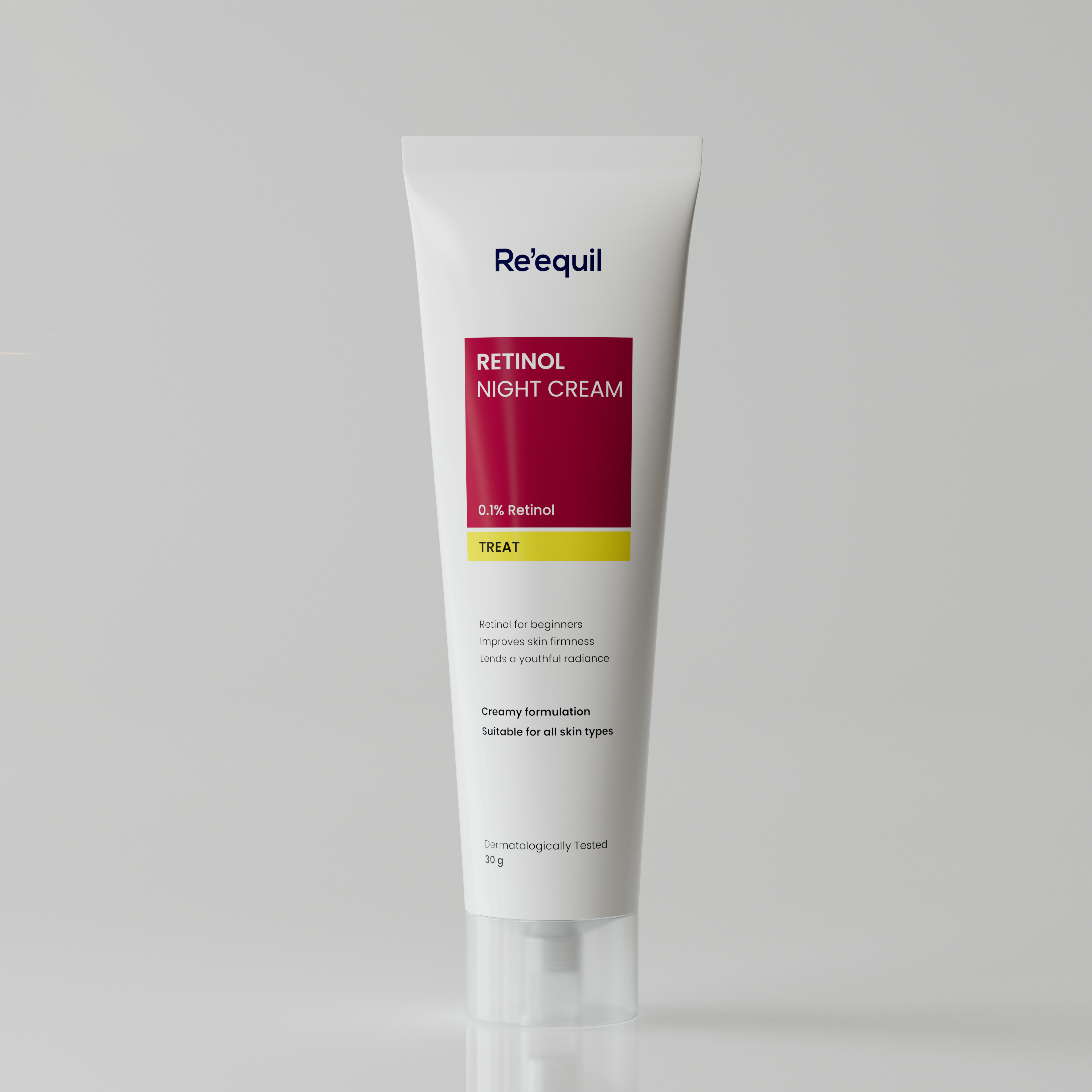Acne is one of the most common skin concerns worldwide, affecting millions of people regardless of age or gender.
While skincare products play a crucial role in managing acne, emerging research suggests that diet, particularly sugar intake, may significantly impact skin health.
But does sugar cause acne?
Let us explore the science behind sugar, insulin spikes and their influence on acne and breakouts.
What causes acne?
Acne is a multifactorial skin condition caused by excess oil (sebum) production, clogged pores, bacterial overgrowth, inflammation and hormonal imbalances.
When the skin produces too much oil, it combines with dead skin cells, blocking pores and creating an ideal environment for Cutibacterium acnes to survive.
This bacterial growth triggers inflammation, leading to breakouts. Hormones, particularly androgens, further stimulate oil production, making the skin more prone to acne.
Additionally, research suggests that certain foods, such as high-sugar diets and dairy, can disrupt hormone levels and alter sebum composition, potentially worsening acne.
How does excess sugar impact your skin—wrinkles, inflammation, and breakouts?
The skin is the body's largest organ, and what you eat directly impacts its health.
Eating too much sugar can cause changes in the skin, such as increased inflammation, oxidative stress and damage to important proteins like collagen and elastin.
This damage reduces skin elasticity, leading to wrinkles.
High sugar intake can also increase certain enzymes (MMP-1/MMP-2 and LOX) that break down collagen, weakening the skin’s structure.
Additionally, diets high in refined carbs and sugar may worsen skin conditions like acne and psoriasis and disrupt hormone balance.
How does sugar contribute to acne?
Sugar affects the body’s insulin levels and overall inflammation, which are closely linked to acne formation.
High sugar consumption, particularly from refined carbohydrates and processed foods, triggers a chain reaction that can lead to breakouts. Here’s how:
Blood Sugar Spikes and Increased Insulin Production
- When you consume sugary foods, your blood sugar levels rise rapidly, leading to a sudden surge of glucose in the bloodstream, which the body must quickly manage.
- The pancreas responds by releasing insulin to regulate glucose levels, ensuring that excess sugar is absorbed by cells for energy or stored for later use.
- High insulin levels stimulate the production of androgen hormones, which increase sebum (oil) production and clog pores, creating an environment that fosters acne breakouts and skin inflammation.
Inflammation and acne flares
Sugar promotes systemic inflammation, which exacerbates acne, by triggering the release of pro-inflammatory molecules called cytokines, leading to redness, swelling, and increased severity of breakouts.
Chronic inflammation weakens the skin barrier, leading to irritation, breakouts, moisture loss, and increased sensitivity to bacteria and pollutants.
Impact on the gut microbiome
- The gut and skin are closely linked—a healthy gut microbiome controls inflammation, immunity, and nutrient absorption, all essential for clear skin. Too much sugar can disrupt gut balance, potentially triggering breakouts.
- An imbalance in gut bacteria due to high sugar consumption can trigger acne because sugar disrupts the equilibrium between good and bad bacteria, increasing inflammation and toxin build-up that manifests as skin issues.
- Refined sugar fuels harmful bacteria, leading to inflammation and breakouts. Excess bad bacteria can weaken the gut lining, allowing toxins to enter the bloodstream and harm the skin.
Glycation and premature aging
- High sugar intake accelerates a process called glycation, where sugar molecules attach to collagen and elastin, leading to stiff and damaged skin fibers, making the skin lose its elasticity and firmness, resulting in wrinkles, sagging, and a dull complexion.
- This accelerates ageing and slows acne scar healing, as weakened collagen and elastin hinder skin repair, making scars more visible and delaying regeneration.
Scientific studies linking sugar to acne
Several studies have examined the relationship between diet and acne, and many suggest that high-glycemic diets (diets rich in sugar and refined carbohydrates) are associated with increased acne severity.
- A 2020 study published in JAMA Dermatology found that individuals consuming high amounts of sugary foods and drinks had a 54% higher likelihood of experiencing moderate to severe acne.
- Another study in The American Journal of Clinical Nutrition showed that participants who switched to a low-glycemic diet experienced significant reductions in acne lesions within 10 weeks.
- Research published by Springer Nature, highlights how insulin spikes trigger increased oil production and inflammation, both key contributors to acne.
List of High-Glycemic vs. Low-Glycemic Foods: What to Eat for Clear Skin
Diet plays a crucial role in skin health, especially when it comes to managing acne.
High-glycemic foods cause rapid spikes in blood sugar and insulin levels, leading to increased oil production and inflammation that can trigger breakouts.
On the other hand, low-glycemic foods help maintain steady blood sugar levels, supporting clear, healthy skin.
Making mindful food choices can significantly impact skin clarity and overall well-being.
High-Glycemic Foods (Avoid or Limit):
- White bread, pasta and rice- cause rapid blood sugar spikes and contribute to insulin resistance.
- Sugary drinks (soda, fruit juices, energy drinks)- Lead to quick energy crashes and increased cravings.
- Processed snacks (cookies, chips, cakes)- High in refined sugars and unhealthy fats, promoting weight gain.
- Candy and chocolate- Contain excessive sugar, which can lead to tooth decay and metabolic issues.
- Breakfast cereals with added sugars- Provide little nutrition and can contribute to obesity and diabetes.
Low-Glycemic Foods (Best for Skin Health):
- Whole grains (quinoa, brown rice, whole wheat bread)- Provide steady energy, essential fibre, and nutrients that support healthy, glowing skin.
- Fresh vegetables (spinach, broccoli, bell peppers)- Rich in vitamins, antioxidants and hydration, which help protect the skin from oxidative stress and premature aging.
- Fruits with low sugar content (berries, apples, pears)- offer essential vitamins, antioxidants and hydration without causing blood sugar spikes that can trigger breakouts.
- Nuts and seeds (almonds, walnuts, flaxseeds)- Packed with healthy fats, omega-3s, and vitamin E, which nourish the skin and reduce inflammation.
- Lean proteins (fish, chicken, lentils, tofu)- Provide amino acids essential for collagen production, skin repair, and overall skin strength.
How to cut sugar for clearer, healthier skin?
If you are struggling with persistent acne, reducing sugar intake could be a game-changer for your skin.
Here are some practical ways to transition to a low-sugar lifestyle:
- Read food labels: Hidden sugars are present in sauces, dressings and packaged foods. Look for names like sucrose, fructose and high-fructose corn syrup.
- Choose natural sweeteners: Swap refined sugar for healthier alternatives like raw honey, stevia or monk fruit.
- Increase fiber intake: Fiber slows down sugar absorption, preventing blood sugar spikes. Whole grains, legumes and leafy greens are excellent sources.
- Hydrate with water: Replace sugary drinks with water or herbal teas to keep your skin hydrated and flush out toxins.
- Balance meals with protein and healthy fat: This helps maintain steady insulin levels and supports overall skin health.
- Practice mindful eating: Reducing cravings for sugary foods can be easier by eating protein-rich breakfasts and consuming nutrient-dense meals throughout the day.
The bottom line
So, does sugar cause acne? While it may not be the sole cause, evidence strongly suggests that high sugar intake contributes to breakouts by triggering inflammation and excess sebum production.
If you are looking for clearer skin, focusing on a balanced diet with low-glycemic foods can make a noticeable difference.
For optimal results, pair a healthy diet with a skincare routine tailored to acne-prone skin.
By nourishing your body from the inside out and using targeted skincare, you can achieve long-lasting radiant and a natural glow.


































